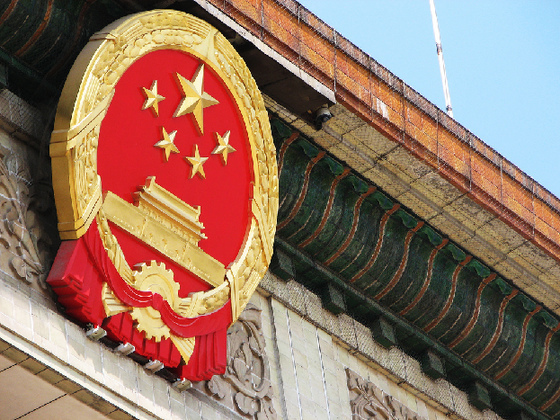China embraces reforms to strengthen the rule of law
- By Eugene Clark
 0 Comment(s)
0 Comment(s) Print
Print E-mail China.org.cn, October 20, 2014
E-mail China.org.cn, October 20, 2014
The Fourth Plenary Session of the 18th Central Committee of the Community Party of China (CPC) started in Beijing today, and a major item on the agenda will be reforms to strengthen the rule of law. While such reforms are both needed and desirable, it is helpful and encouraging to look back and see that much has already been done in recent years to strengthen the rule of law.
|
|
|
The PRC has enhanced the rule of law cautiously by creating a much safer financial system and enhancing government transparency over the past two decades, but there is still work to be done. |
The existence of a strong rule of law is strongly correlated to the level of confidence that citizens and foreign investors have about such important values as the enforcement of contracts and compliance with the formal and informal rules that govern society as a whole. These values underpin a vital legal infrastructure that enables society to function efficiently, effectively and fairly.
In 1999 the concept of "rule of law" became part of China's Constitution when Article 5 was amended to state that, "The People's Republic of China governs the country according to law and makes it a socialist country under the rule of law."
China's transition over the past decades to a market economy has also been a major factor in its move toward the rule of law. China's implementation of the 2008 anti-monopoly law and the country's renewed focus on its continued development and enforcement are important components of Chinese legal reforms that promote the rule of law. China's anti-graft campaign, with its multiple measures to combat corruption, is also key to the concept of "rule of law."
China is also now a major player in e-commerce, as shown by the spectacular success of Alibaba's IPO and the growing number of Chinese netizens embracing new technology, for example over 600 million now use the Internet with most embracing social media, including government blogs. The Global Index of Innovation 2014 rankings also showed that more patents were filed and more trademarks were registered in China than in any other country. This progress has been greatly aided by many Chinese legal reforms in telecommunications, privacy protection, anti-spam legislation, strengthened consumer protection, competition law and digital signature legislation, all of which help to increase public trust in this new economic environment.
China also signed the Basel Accord, which regulates capital and liquidity for banks and financial institutions, in 2009. The country is also ahead of schedule in its implementation of Basel III reforms, which are required to be fully in place by 2019. The next step is for China to work out a suitable regulatory framework to deal with shadow banking by devising regulations that protect the public while allowing the system to fulfill unmet needs for capital.







Go to Forum >>0 Comment(s)